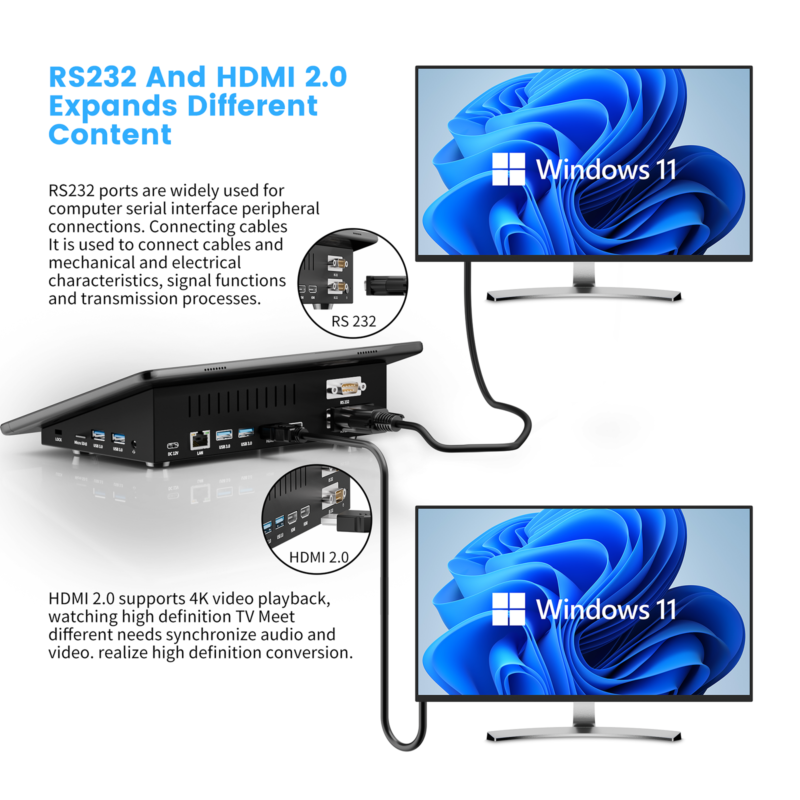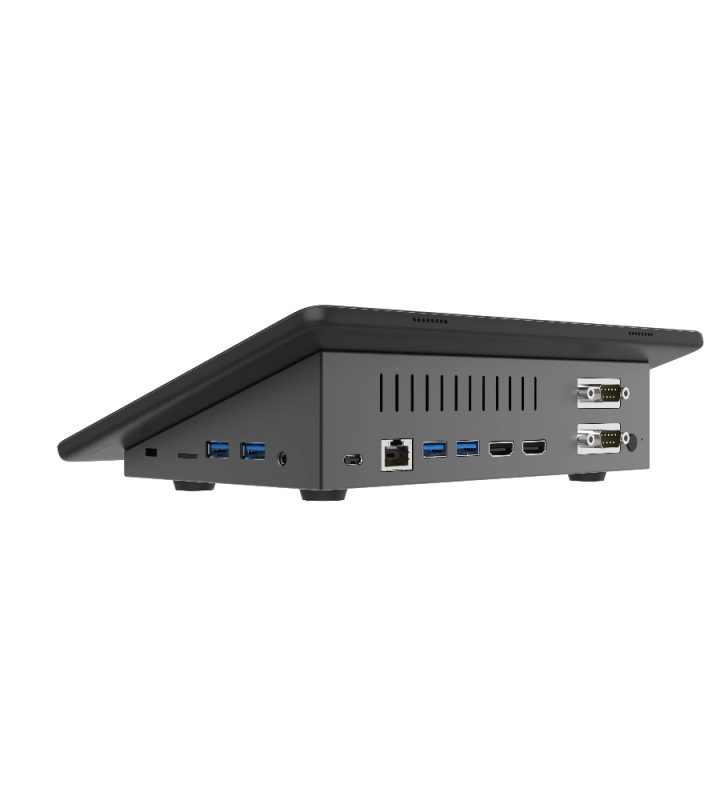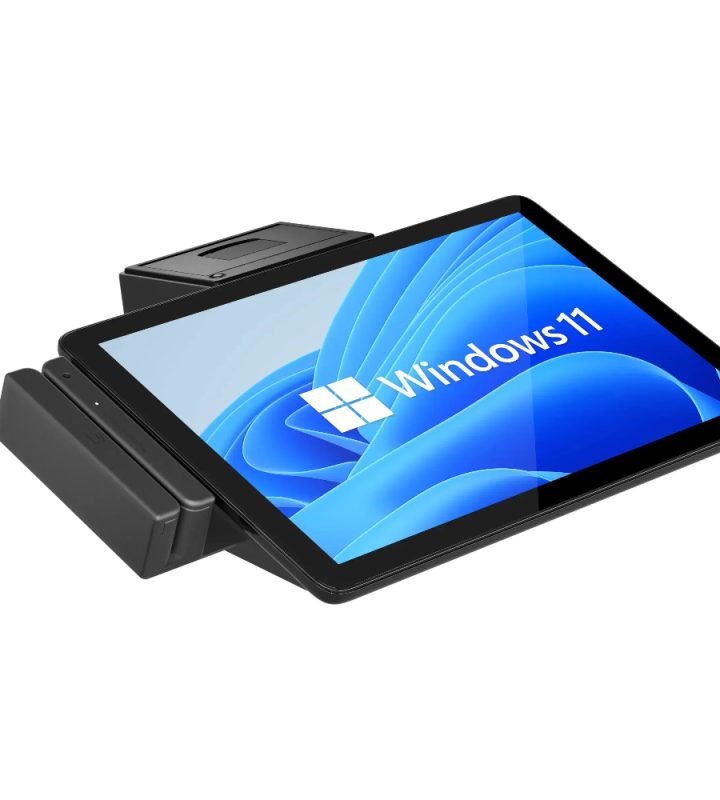POS Hardware: How to Choose the Right POS Computer for Your Business

1. Introduction
In modern retail and hospitality industries, POS system hardware plays a crucial role in streamlining transactions, managing inventory, and enhancing customer experiences. Choosing the right POS computer hardware is essential for businesses that rely on efficient and durable POS solutions. This guide will help B2B buyers, especially those looking for POS touchscreen computers, understand what POS hardware is, why it matters, and how to select the best option.

2. What is POS Hardware?
POS hardware refers to the physical components that make up a point-of-sale system. These devices work together to process payments, manage sales, and interact with customers. The core components of POS system hardware include:
All-in-One POS Computer: A comprehensive system integrating a touchscreen, processing unit, and connectivity features.
POS Terminal: A standalone computing device designed for transaction processing.
Receipt Printer: Prints transaction receipts for customers.
Barcode Scanner: Facilitates quick product identification and inventory management.
Cash Drawer: Secure storage for cash transactions.
Customer Display Screen: Provides transaction details and promotional content to customers.

3. Why is Choosing the Right POS Hardware Important?
For businesses requiring high-performance POS computer hardware, selecting the right system is crucial for several reasons:
Performance & Speed: A slow POS system can lead to long queues and poor customer experience.
Durability: POS devices often run for extended periods, making industrial-grade hardware essential.
Software Compatibility: Not all POS system hardware supports all POS software solutions.
Connectivity: Businesses require seamless integration with printers, scanners, and cloud-based systems.
Touchscreen Sensitivity: A high-quality POS touchscreen computer improves ease of use and efficiency.
Energy Efficiency: Since POS systems operate continuously, energy-efficient hardware helps reduce costs.
4. How to Choose the Best POS Hardware?
4.1 Processing Power & Memory (RAM)
The performance of POS system hardware depends on its processing capability.
Recommended Processors: Intel or AMD Ryzen for smooth operation.
Memory (RAM): At least 4GB, preferably 8GB or more for multitasking support.
4.2 Display & Touchscreen
A POS touchscreen computer should have high responsiveness and durability.
Screen Size: 10"–15" for small businesses, 15.6"–21" for high-traffic environments.
Touch Technology: Capacitive touchscreens are more responsive and durable than resistive ones.
Resolution: Full HD (1920x1080) is recommended for clear visuals.
4.3 Storage & Expandability
Storage Type: SSD (Solid State Drive) is faster and more reliable than HDD (Hard Disk Drive).
Storage Capacity: At least 128GB, preferably 256GB or more for storing large transaction data.
USB & Connectivity: Ensure multiple USB, HDMI, and Ethernet ports for peripheral integration.
4.4 Operating System Compatibility
Common Operating Systems: Windows 10/11, Linux, or Android-based POS systems.
Cloud vs. On-Premises: Cloud-based POS systems require a stable internet connection.
4.5 Build Quality & Durability
Materials: Aluminum or reinforced plastic casings for increased durability.
Water & Dust Resistance: Crucial for restaurants and industrial environments.
4.6 Payment & Peripheral Integration
Card Readers: Ensure compatibility with EMV, NFC, and contactless payments.
Printers & Scanners: Ensure seamless integration with barcode scanners and receipt printers.
Customer Display Screen: Optional but enhances customer transparency.
5. POS Hardware Recommendations for Different Industries
| Business Type | Recommended POS Hardware |
|---|---|
| Retail Stores | All-in-One POS Computer, barcode scanner, receipt printer, cash drawer |
| Restaurants | POS Touchscreen Computer, water-resistant design, kitchen printer integration |
| Supermarkets | High-performance POS terminal, multiple scanning devices integration |
| Hospitality | POS System Hardware, cloud management, multi-store data synchronization |

6. Conclusion
Choosing the right POS hardware is a crucial investment for any business. POS touchscreen computers, and other POS system hardware should be selected based on performance, compatibility, durability, and business requirements. By evaluating processor speed, storage capacity, touchscreen quality, and peripheral integration, businesses can ensure efficient and seamless transaction processing.
If you need more detailed recommendations on POS computer hardware, feel free to contact our expert team. We provide tailored solutions for various industries to ensure the best performance and reliability for your business.

Higole POS F10 Touch Screen Monitor 10.1″ Mini PC in Wholesale, Intel N5095, Windows 11, Fully POS Software Compatible
$265.00 – $285.00
Higole POS F10 10.1-Inch Touch Tablet with Card Reader , fully Compatible with Major POS Systems– All-in-One POS Hardware
$285.00 – $305.00GolePOS tablets are known for their low energy consumption, power efficiency, excellent compatibility, and durability. As a pos machine manufacturer and Wholesale POS Provider, GolePOS offers high customization options for ODM/OEM services, allowing for customization in appearance, hardware configuration, and various POS-specific functionalities, which has earned the trust of our current customers.





